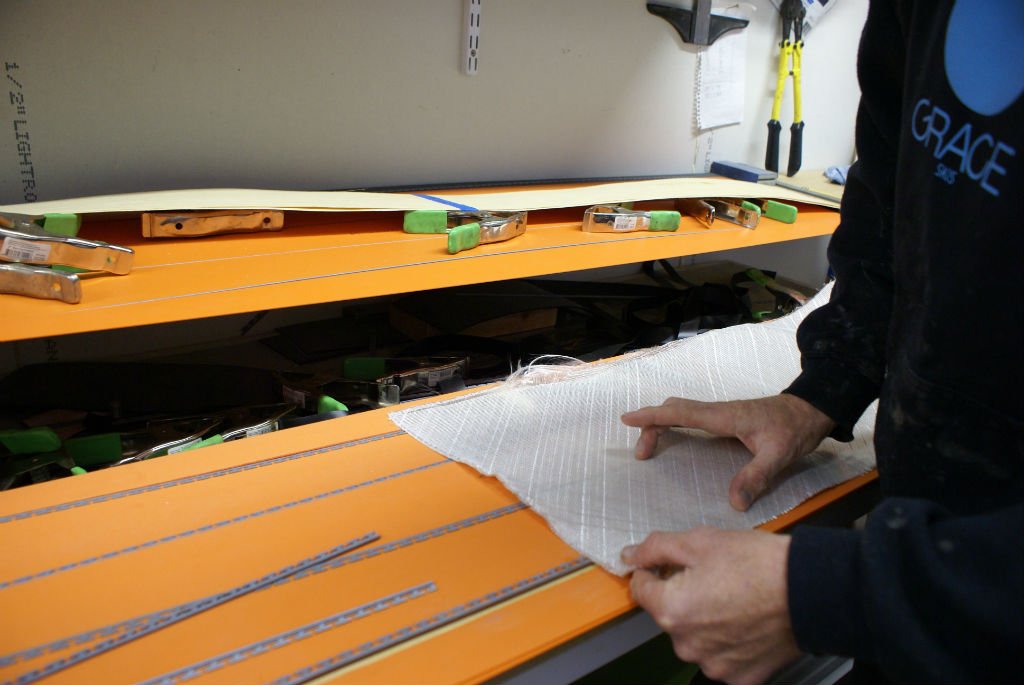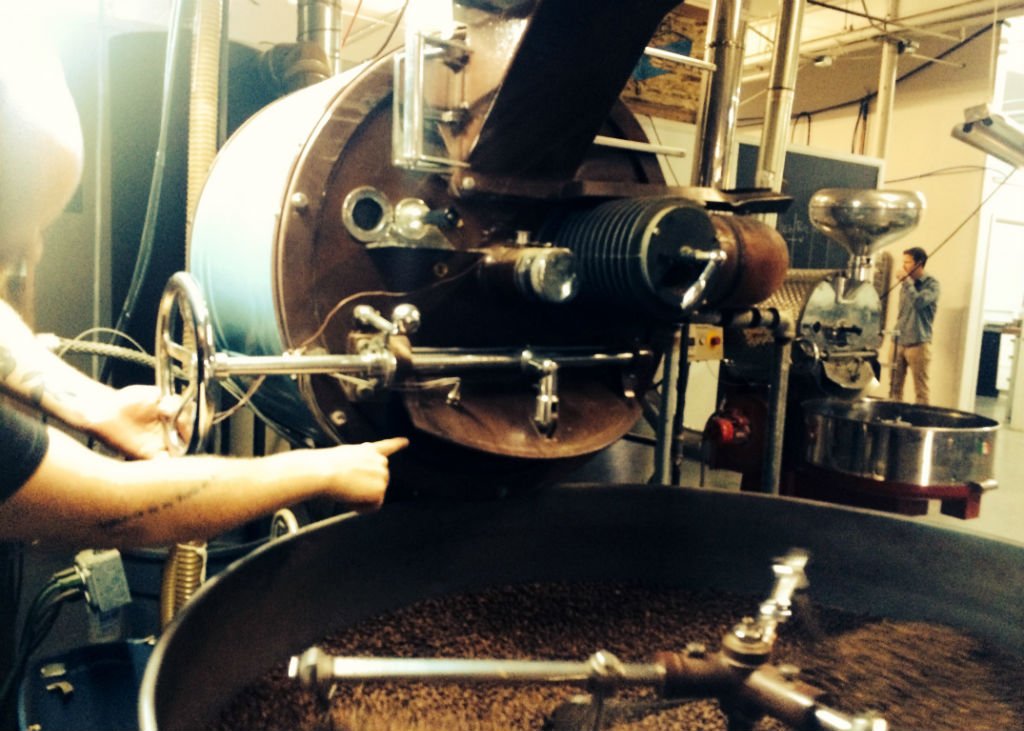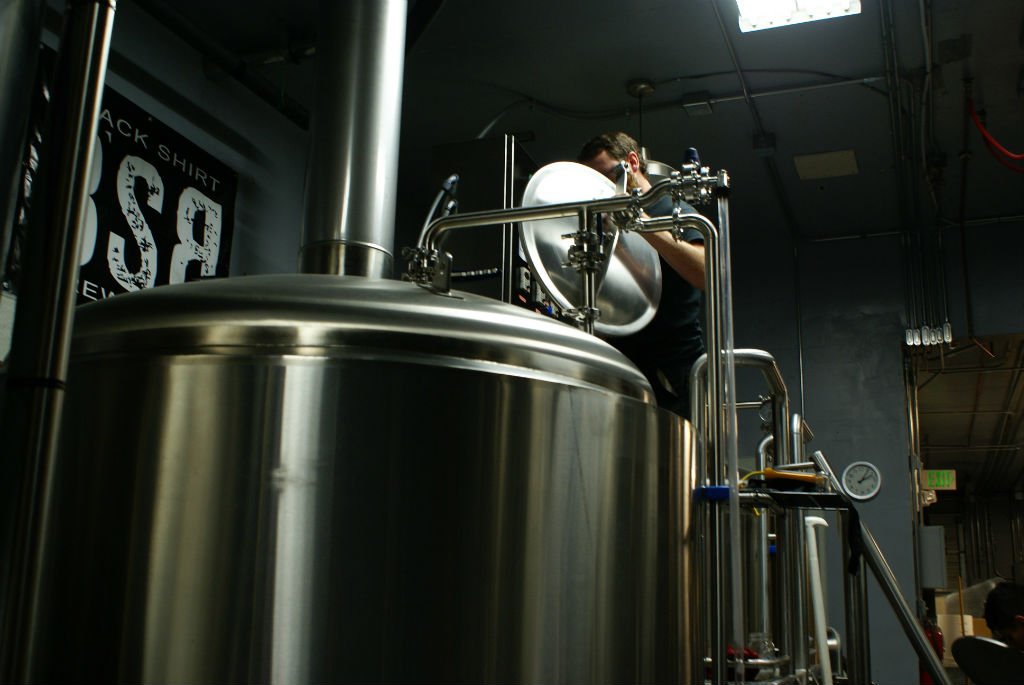Denver’s Small Batch Manufacturers Signal Potentially Big Shift
In 2010, David Liechty was working as a landscape architect, making good money and traveling to the world’s premiere resorts. Then he got laid off.Liechty joined two friends and former coworkers that evening for a tequila-infused, sorrow-drowning bender, woke up the following morning, hangover and all, and started Grace Skis (named after his grandmother). “I was always drawing skis in the margins on work papers and in my spare time,” Liechty says. “That day, I designed the logo, started an LLC, set up the Facebook page … All I had left to do was teach myself how to make skis.”With an industrial design degree, he “gutted his kitchen,” studied up, built a ski press, and started making his first pair that July. By January 2011 he was enjoying a powder day for the very first time on skis he created with his very own hands.Today, Grace Skis are designed and built in Liechty’s Denver workshop (1190 Cherokee St.), tested both on and off-piste in Colorado and enjoyed all over the world. “What sets us apart?” he asks rhetorically. “We make ‘em, design ‘em, manufacture ‘em, ski on ‘em – all right here.”Working on a direct-to-consumer model, “what we get to do is make changes faster than practically anyone else, because we craft your skis upon receiving the order,” Liechty says.But he doesn’t suggest that this creative freedom comes without its challenges.“First thing I tell people for Startup Week is, yes, it is possible to build a business. But it can be excruciating. You have to make really hard choices along the way and you have to accept you can’t please everyone, manufacturing or not. It’s not all glamorous or romantic they way it often seems.”
“That day, I designed the logo, started an LLC, set up the Facebook page … All I had left to do was teach myself how to make skis.”With an industrial design degree, he “gutted his kitchen,” studied up, built a ski press, and started making his first pair that July. By January 2011 he was enjoying a powder day for the very first time on skis he created with his very own hands.Today, Grace Skis are designed and built in Liechty’s Denver workshop (1190 Cherokee St.), tested both on and off-piste in Colorado and enjoyed all over the world. “What sets us apart?” he asks rhetorically. “We make ‘em, design ‘em, manufacture ‘em, ski on ‘em – all right here.”Working on a direct-to-consumer model, “what we get to do is make changes faster than practically anyone else, because we craft your skis upon receiving the order,” Liechty says.But he doesn’t suggest that this creative freedom comes without its challenges.“First thing I tell people for Startup Week is, yes, it is possible to build a business. But it can be excruciating. You have to make really hard choices along the way and you have to accept you can’t please everyone, manufacturing or not. It’s not all glamorous or romantic they way it often seems.” Production time for a single pair of Grace Skis currently hovers around seven hours.“My goal is and has always been to avoid diluting the product just to build a brand,” he says of Grace. “It’s my opinion that there’s something innately lost if you don’t have bamboo under your fingernails or epoxy covering every sweatshirt you own.”Whether housed in small-scale workshops or larger manufacturing facilities, the paradigm for creators like Liechty is shifting, as businesses attempt to genuinely carve out a niche and connect with an audience in an increasingly busy marketplace.Close to home, the proof of this transformation was most definitely present in the products and people behind them at Denver Startup Week. In the spirit of our five-day local holiday, Something Independent invited three local makers — Grace Skis, Novo Coffee and Black Shirt Brewery — to host a series of small-batch manufacturing tours for mobile and curious spectators. Be their products sip-able, ski-able or otherwise, the one thing that rings true: It takes a hell’uva lot of work.The small batch stories — the triumphs and struggles alike — represent an “intersection of lifestyle and commerce” that Liechty defines as making “life work and work life.”
Production time for a single pair of Grace Skis currently hovers around seven hours.“My goal is and has always been to avoid diluting the product just to build a brand,” he says of Grace. “It’s my opinion that there’s something innately lost if you don’t have bamboo under your fingernails or epoxy covering every sweatshirt you own.”Whether housed in small-scale workshops or larger manufacturing facilities, the paradigm for creators like Liechty is shifting, as businesses attempt to genuinely carve out a niche and connect with an audience in an increasingly busy marketplace.Close to home, the proof of this transformation was most definitely present in the products and people behind them at Denver Startup Week. In the spirit of our five-day local holiday, Something Independent invited three local makers — Grace Skis, Novo Coffee and Black Shirt Brewery — to host a series of small-batch manufacturing tours for mobile and curious spectators. Be their products sip-able, ski-able or otherwise, the one thing that rings true: It takes a hell’uva lot of work.The small batch stories — the triumphs and struggles alike — represent an “intersection of lifestyle and commerce” that Liechty defines as making “life work and work life.” Jake Brodsky, president and co-founder of Novo Coffee says: “For us, it’s about buying the right product to begin with and then building the right team,” He explains that over the past three to four years, Colorado has turned into the “Wild West,” with the explosion of craft coffee operations. Novo (3008 Larimer St.) got its start in 2002, before the boom.Calling his a “people-company,” Brodsky says, “We’re just excited to experiment.” One perk of the ever-evolving small batch style of manufacturing: “We keep figuring out the nuances.”Similarly Chad Miller, CEO and co-founder of family-owned, red ale-focused Black Shirt Brewery (3719 Walnut St.) says: “We have enough ideas for different red ales to last us ten lifetimes.The four-and-half-year-old brewery, envisioned in 1999, is a family affair and labor of love that required Miller to work multiple jobs to get the doors open. Along with BSB’s standard lines, the brewery also concocts experimental batches and one-off projects.
Jake Brodsky, president and co-founder of Novo Coffee says: “For us, it’s about buying the right product to begin with and then building the right team,” He explains that over the past three to four years, Colorado has turned into the “Wild West,” with the explosion of craft coffee operations. Novo (3008 Larimer St.) got its start in 2002, before the boom.Calling his a “people-company,” Brodsky says, “We’re just excited to experiment.” One perk of the ever-evolving small batch style of manufacturing: “We keep figuring out the nuances.”Similarly Chad Miller, CEO and co-founder of family-owned, red ale-focused Black Shirt Brewery (3719 Walnut St.) says: “We have enough ideas for different red ales to last us ten lifetimes.The four-and-half-year-old brewery, envisioned in 1999, is a family affair and labor of love that required Miller to work multiple jobs to get the doors open. Along with BSB’s standard lines, the brewery also concocts experimental batches and one-off projects. “We’ve been fed the Kool-Aid and expected that beer should taste a particular way,” Miller says of traditional brews, prior to the craft explosion. “But with small, hand-crafted, non-homogenized, thoughtfully prepared products, you can create something earth-shattering.”What is inherently “earth-shattering” about these products may not be the attainment of perfection, but instead the tinkering and tweaking process, perfecting the blend of art, science, patience and heart that goes into each product. As personal preferences progress and consumers — from millenials to boomers and influencers to the comfortably mainstream — seek more and more intel on the products they pay for, one thing is clear: small-batch manufacturing is riding a wave.As both traditional and niche media observe and reflect on buyer behavior, it is evident that collective tastes are shifting. Experience, education and quality are regaining their value. Consumers are increasingly taking these meet-the-maker opportunities to get glimpses of their dedicated spaces and behind-the-scenes processes before they touch, taste and play with these craft products.
“We’ve been fed the Kool-Aid and expected that beer should taste a particular way,” Miller says of traditional brews, prior to the craft explosion. “But with small, hand-crafted, non-homogenized, thoughtfully prepared products, you can create something earth-shattering.”What is inherently “earth-shattering” about these products may not be the attainment of perfection, but instead the tinkering and tweaking process, perfecting the blend of art, science, patience and heart that goes into each product. As personal preferences progress and consumers — from millenials to boomers and influencers to the comfortably mainstream — seek more and more intel on the products they pay for, one thing is clear: small-batch manufacturing is riding a wave.As both traditional and niche media observe and reflect on buyer behavior, it is evident that collective tastes are shifting. Experience, education and quality are regaining their value. Consumers are increasingly taking these meet-the-maker opportunities to get glimpses of their dedicated spaces and behind-the-scenes processes before they touch, taste and play with these craft products.
But does this all mean that the local maker is cornering the market on high quality and precision production? No. Instead, perhaps the lesson to be learned as the economy (of scale) continues to evolve is this: While small doesn’t intrinsically equate to better, it can be disruptive, leading to new processes, styles, flavors and innovations that challenge the common conception of the product and drive new standards in their respective categories.Quality is quality.“There’s no secret to success,” Brodsky says. “It’s about just doing it. You have to have the desire to do the work.”
Denver-based writer-editor Gigi Sukin is a spirited story seeker, ever exploring the heart and soul of founders and makers. She works full-time as associate editor of ColoradoBiz magazine and has contributed to 5280 Magazine. Her story on Denver’s small-batch manufacturers is her first-time contributing to Something Independent.
